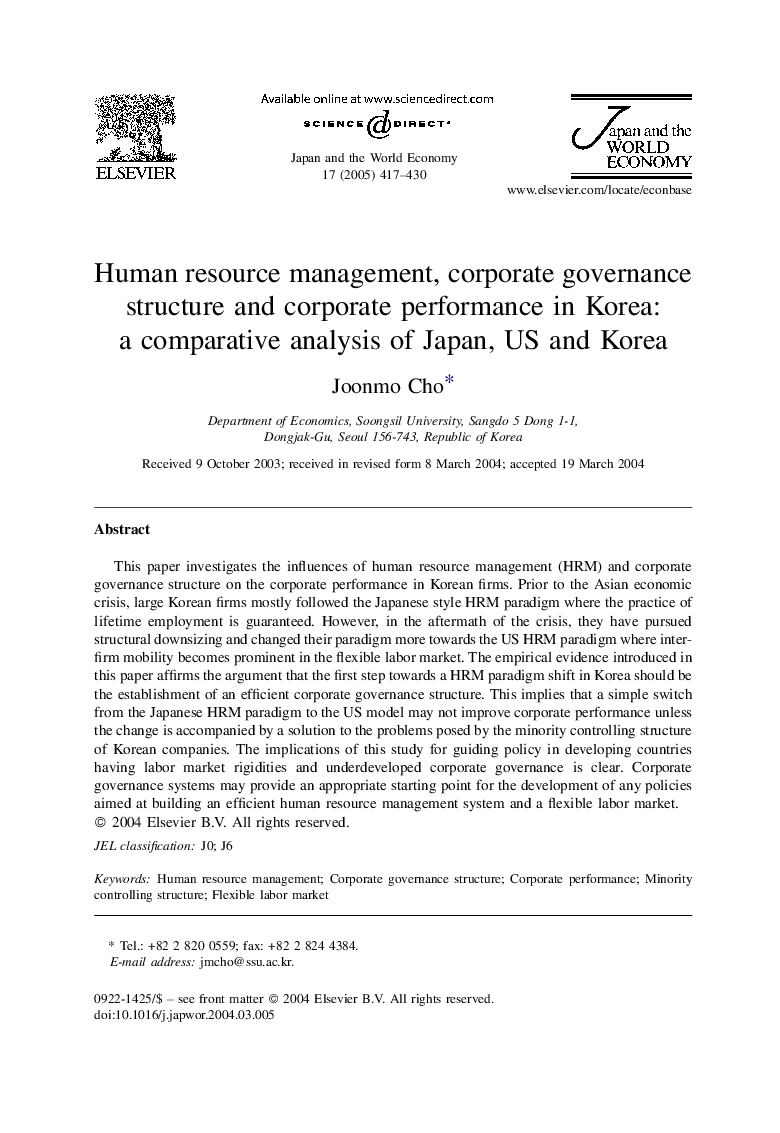| Article ID | Journal | Published Year | Pages | File Type |
|---|---|---|---|---|
| 9553133 | Japan and the World Economy | 2005 | 14 Pages |
Abstract
This paper investigates the influences of human resource management (HRM) and corporate governance structure on the corporate performance in Korean firms. Prior to the Asian economic crisis, large Korean firms mostly followed the Japanese style HRM paradigm where the practice of lifetime employment is guaranteed. However, in the aftermath of the crisis, they have pursued structural downsizing and changed their paradigm more towards the US HRM paradigm where inter-firm mobility becomes prominent in the flexible labor market. The empirical evidence introduced in this paper affirms the argument that the first step towards a HRM paradigm shift in Korea should be the establishment of an efficient corporate governance structure. This implies that a simple switch from the Japanese HRM paradigm to the US model may not improve corporate performance unless the change is accompanied by a solution to the problems posed by the minority controlling structure of Korean companies. The implications of this study for guiding policy in developing countries having labor market rigidities and underdeveloped corporate governance is clear. Corporate governance systems may provide an appropriate starting point for the development of any policies aimed at building an efficient human resource management system and a flexible labor market.
Related Topics
Social Sciences and Humanities
Economics, Econometrics and Finance
Economics and Econometrics
Authors
Joonmo Cho,
